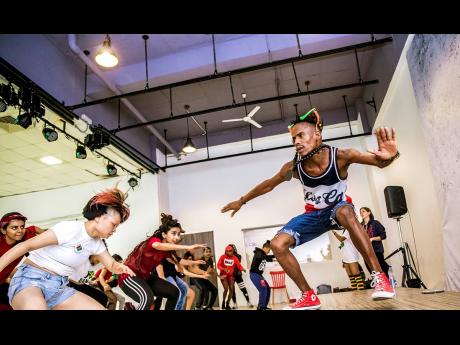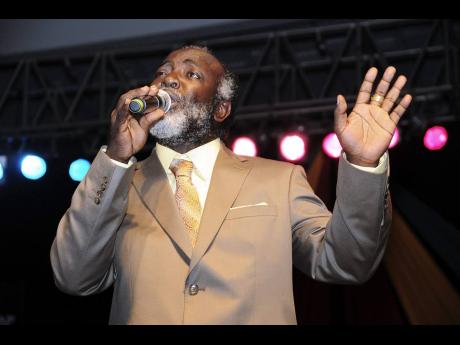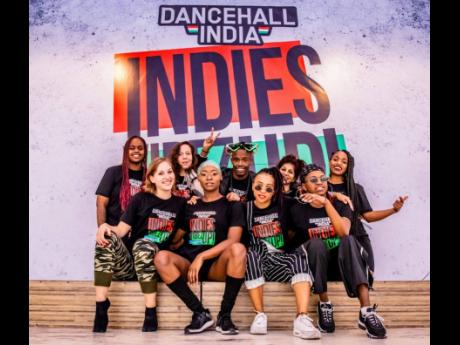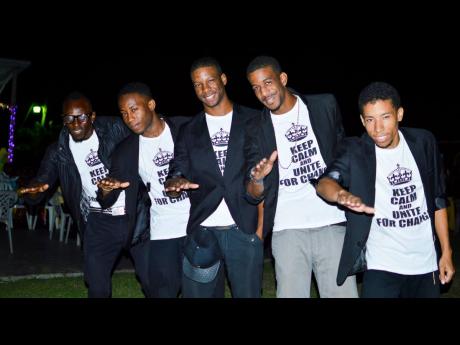Ja culture appreciation or appropriation? Pt I
Dancehall, reggae, and the Jamaican culture is a burgeoning business at various levels for many persons across the globe – whether it is those who wear the hat of reggae singer, deejay, singjay, dancer, or dance instructor. But how much of it is an appreciation of our culture or cultural appropriation? We explore all angles in the first of a two-part series.
Four years ago, when English soul singer-songwriter Joss Stone was crowned Billboard Reggae Artiste of the Year based on the chart performance of her first reggae album, Water for Your Soul, produced by Damian “Jr Gong’ Marley, beyond the congratulations there was quite a bit of grumbling, and the term “appropriation” was bandied about.
Stone, who has been labeled a serial genre-hopper, owing to her tendency to switch from R&B to blues, to funk to rock, to reggae, was in good company. Snoop Dogg, a few years prior, had slapped a red, green, and gold Rasta tam on his head and recorded a reggae album in Jamaica. He reincarnated into Snoop Lion amid the astonishing claims of being the reincarnation of reggae icon Bob Marley.
Again, the term appropriation was shouted out, and it, along with the phrase “culture vulture”, has been echoing in reggae and dancehall circles ever since. But while Stone and Snoop are one-offs, there have been other artistes and groups that make reggae their life, and there are dancers who have a full-time career out of Jamaican culture. Increasingly, artistes have sampled reggae songs, used dance moves developed by Jamaican dancers in their music videos, and have visited Jamaica just to experience the island and its culture. Case in point are Jay Z and Beyoncé, Drake; and Rihanna, who is even now working on a dancehall-reggae album. When it comes to music forms, Reggaeton, Latin Reggae and Reggaespañol, are just a few of the many hybrids or fusions that have been birthed from the genre.
With dancing being placed on the front burner, fuelled by the huge demand by foreigners hungry to learn the moves as they absorb the culture of the island, Conroy Richards of the internationally acclaimed Shady Squad dance group is upbeat. Shady Squad has won several major dance competitions, including the 2010 and 2011 World Reggae Dance award, and they are in demand. Richards has interacted with many persons who are fascinated with the culture and who visit Jamaica just to be taught by Jamaicans how to do the various moves. “People come from all across Europe – Germany, Sweden, Belgium, Spain, Japan, China, and other places in Asia – and flock to Jamaica because it is the hub,” he stated.
Richards is inclined to say that it is all appreciation for the culture, but he is also aware that some persons have ulterior motives.
“There are different people with different motives. Some are just looking to set up a business and see how much they can earn from it. So you will find that they come to network and get as much information as they possibly can so that they can go back and explore just how viable it is and even try to rip off the culture,” Conroy said.
He noted that for others, it is all about the unadulterated love of the Jamaican culture.
“Those are the people who are most passionate about Jamaica and all it has to offer. They will come and experience it for themselves, and the following year, they return and bring friends. My brother, who is a founding member of Shady Squad, brought a group of 10 Europeans with him last month, and they visited the nightly dances, the dance classes, and did the tours,” he said.
Appreciation
As far as reggae singer Freddie McGregor is concerned, it’s definitely appreciation. And he used reggae group Big Mountain as his base. An American band out of California, Big Mountain has been a staple in reggae for decades. Interestingly, the number of reggae bands out of California is mind-boggling: Rebelution, Passafire, Slightly Stoopid, Clear Conscience, Natural Incense, Pepper, Ballyhoo!, Tomorrows Bad Seeds, Iration, Mystic Roots, and The Expendables, just to name a few.
McGregor is clearly a fan of Big Mountain and has maximum respect for their love for the genre and their work ethics. “Just recently, we were talking about how Big Mountain has grown. Ever since they did Ooh Baby I Love your Way, it was so refreshing. I remember the group from when they used to travel around in a yellow school bus from one venue to another. At night, we use to give them pillows from our hotel so they could be comfortable. Then they started to go to the festivals, and look at them now,” McGregor stated. He also highlighted reggae groups Rebelution and Sticky Fingers, which have both had a long-running presence on the Billboard Reggae Albums chart.
“These guys do it because of the love. I admire them because they genuinely love the music. Another example can be found in Hawaii. Over there, reggae is a big deal. The Polynesians are some of the biggest reggae fans ever,” said the man who has been there and experienced first hand the love given to reggae artiste J Boog and others who have made a huge impact using reggae music. “We embrace them, and we say we are grateful that our work has reached out there and it has made such an astounding impact. Reggae has resonated so much, we can be proud that we have created something that the world is running down,” McGregor concluded.




